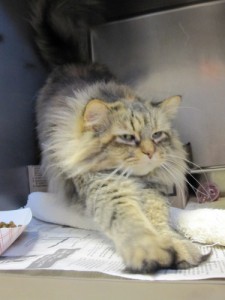The Chester County Health Department will conduct a mosquito control treatment spray in portions of Birmingham and Thornbury townships. The treatment is scheduled for Thursday, Aug. 10 from 7:45 to 11 p.m. The rain date for this event is Tuesday, Aug. 15.
The Chester County Health Department conducts mosquito control treatment in areas with high levels of mosquito activity and where multiple mosquito samples have tested positive for West Nile Virus. After exhausting all other available mosquito control strategies, spraying is conducted to reduce residents’ risk of WNV infection. Anyone living in an area where mosquitoes are infected with WNV is at risk, but the risk of infection is highest for people who work outside or participate in outdoor activities.
Less than 1 percent of people infected will develop serious illness. While serious illness can occur in people of any age, people over 60 years of age, people who have received organ transplants, and people with certain medical conditions such as cancer, diabetes, hypertension, and kidney disease are at the greatest risk for serious illness.
The Health Department uses a truck-mounted sprayer to apply 1.5 ounces of U.S. Environmental Protection Agency-approved product (Permanone) per acre of land. The mosquito control spray becomes inactive in just a few hours or with sunshine. Sprays are conducted after sunset, when mosquitoes are most active and bees have returned to their hives. Sprayers are turned off near bodies of water and apiaries to protect aquatic life and bees. The department also notifies registered beekeepers and residents who are listed as hypersensitive in a designated spray area prior to conducting a spray.
People who are concerned about exposure to mosquito control products can reduce their potential for exposure by staying indoors with children and pets when their neighborhood is being sprayed. If you would like to take extra precautions after the spray is completed, you can rinse off outdoor furniture or playground equipment before use.
Although spraying helps to reduce mosquito populations, the department encourages residents to “Make You and Your Home a Bite-Free Zone” to prevent WNV and other mosquito-borne diseases. Because mosquito-borne diseases are spread through the bite of an infected mosquito, residents can reduce their risk by using insect repellent and other personal protection and getting rid of standing water on their property.
The Health Department advises:
- Limit outdoor activities at dawn and dusk during warmer months since most types of mosquitoes bite most frequently during these times. Be aware though that some types of mosquitoes bite most frequently during the daytime.
- Wear long-sleeved shirts and long pants, and socks. Choose clothing that is light colored and made of tightly woven material.
- Stay in places with air conditioning and window and door screens to keep mosquitoes outside.
- Sleep under a mosquito bed net if you are overseas or outside.
- If you choose to use insect repellents, use Environmental Protection Agency (EPA)-registeredrepellents with one of the following active ingredients: DEET, picaridin, IR3535, oil of lemon eucalyptus, or para-menthane-diol. Choosing an EPA-registered repellent ensures the EPA has evaluated the product for effectiveness. When used as directed, EPA-registered repellents are proven safe and effective, even for pregnant and breast-feeding women.
- Always read and follow the product label instructions carefully.
- Reapply insect repellent as directed.
- Do NOT spray repellent on the skin under clothing.
- If you are also using sunscreen, apply sunscreen before applying insect repellent.
- To protect your child from mosquito bites:
- Do NOT use insect repellent on babies younger than 2 months old.
- Do NOT use products containing oil of lemon eucalyptus or para-menthane-diol on children younger than 3 years old.
- Do NOT apply insect repellent onto a child’s hands, eyes, mouth, and cut or irritated skin.
- Adults: Spray insect repellent onto your hands and then apply to a child’s face.
- Dress your child in clothing that covers arms and legs.
- Cover cribs, strollers, and baby carriers with mosquito netting.
- Clothing and gear treated with permethrin or permethrin spray for clothing is available for purchase. Read and follow product information carefully to determine if this is a solution for you.
- Treated clothing remains protective after multiple washings. See product information to learn how long the protection will last.
- If treating items yourself, follow the product instructions carefully.
- Do NOT use permethrin products directly on skin. They are intended to treat clothing.
- To protect your pets:
- Do NOT use any product on pets unless it is specifically made for pets.
The Health Department also encourages the public to:
- Cover or empty containers such as trash cans, wading pools, wheelbarrows, and pots.
- Turn containers upside down when not in use so they don’t collect water.
- Drill holes in the bottom of recycling containers.
- Get rid of old tires.
- Change the water in bird baths every three to five days.
- Check storm drains, window wells, and underneath leaky faucets for standing water.
- Clean roof gutters every year.
- Aerate and/or stock ornamental ponds with fish.
- Keep swimming pools clean and chlorinated. Make sure that water does not gather on swimming pool covers.
- Treat a pool of standing water that cannot be drained with Bti products. Bti is a naturally-occurring bacterial product that kills mosquito larvae and is safe for people, pets, aquatic life, and plants. You can find these products at local lawn and garden supply stores.
- Make sure that window and door screens fit tightly to keep mosquitoes out of your home.
- Run electric fans nearby when spending time outdoors. Mosquitoes have trouble flying in strong winds.
- Replace outdoor lights with yellow "bug" lights, which tend to attract fewer mosquitoes than ordinary lights.
For more information on mosquito control sprays, call 610-344-6752. For information on preventing mosquito-borne diseases, visit www.chesco.org/mosquitoes.



Comments